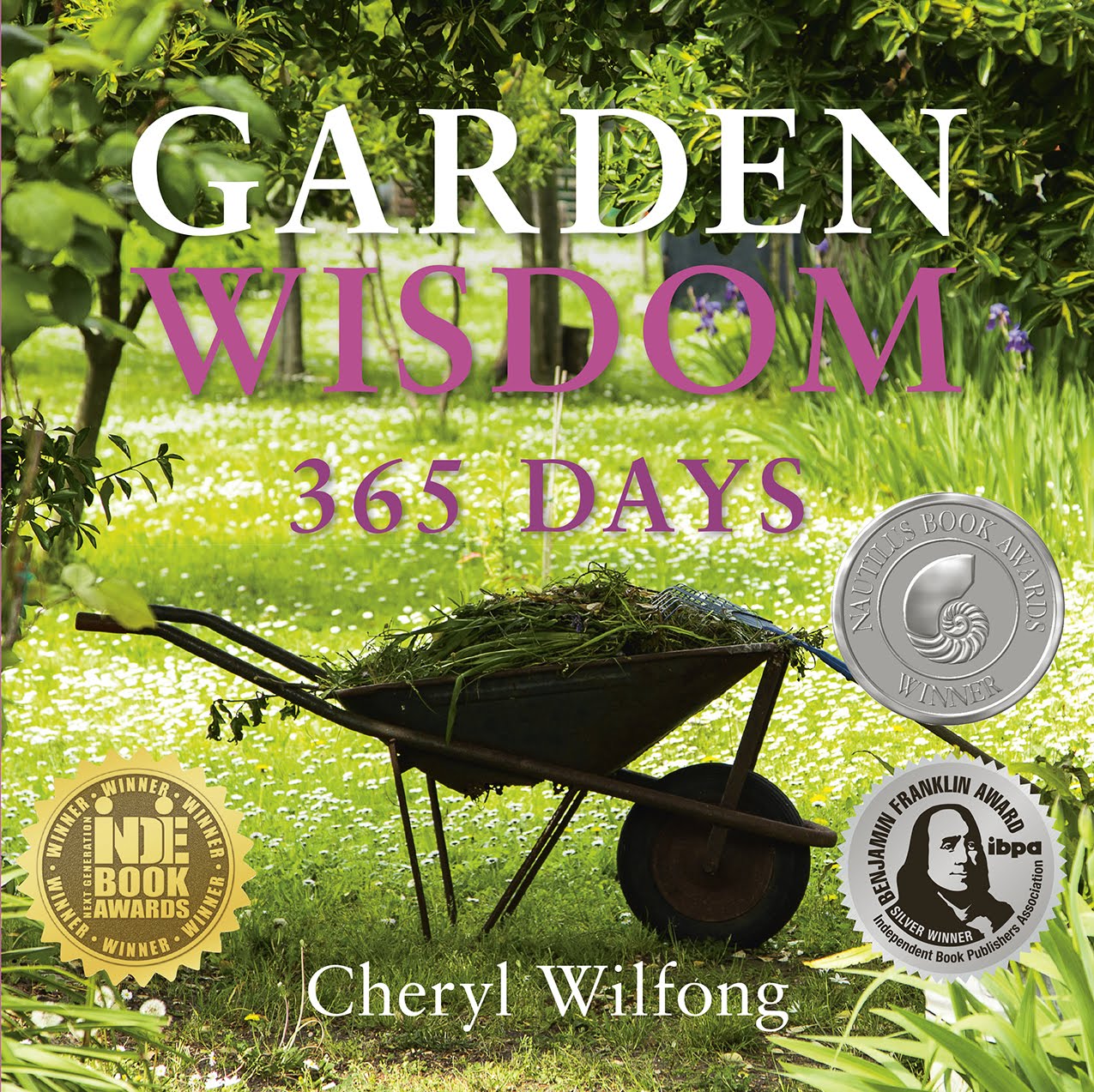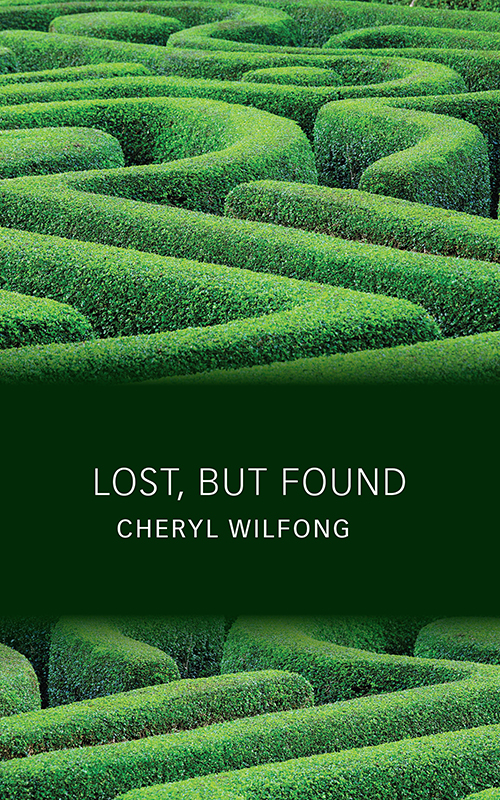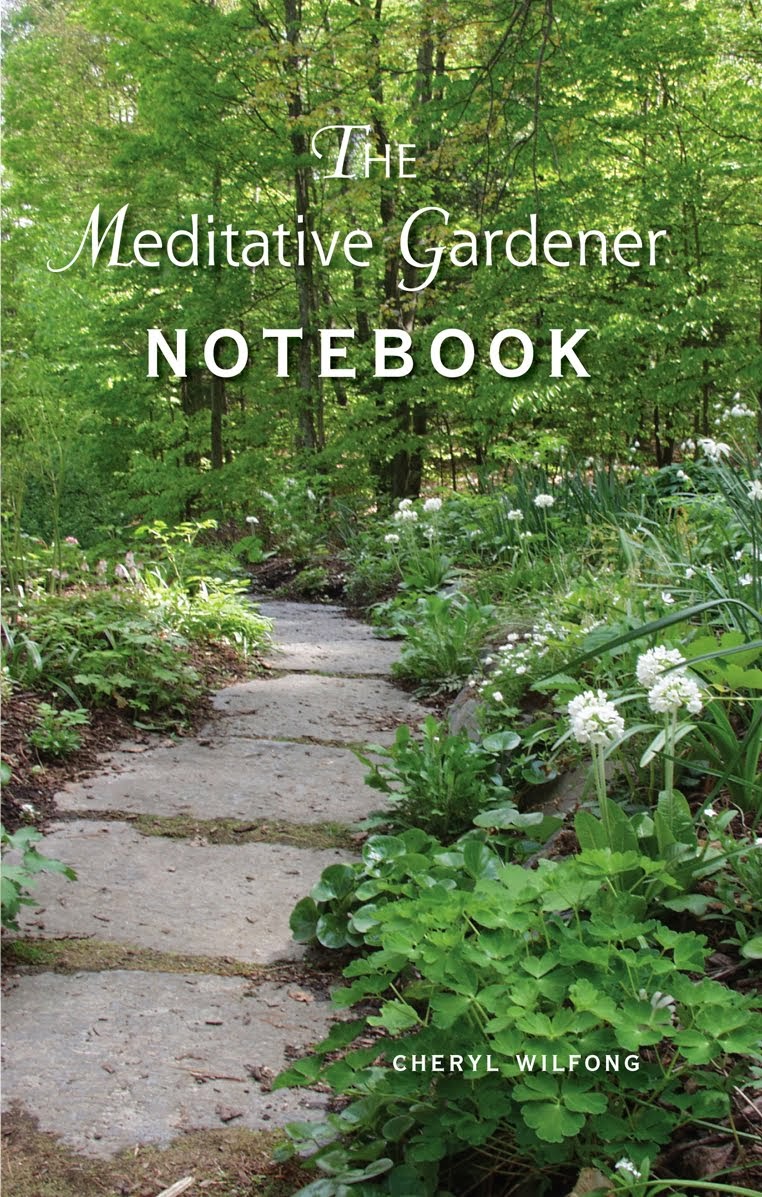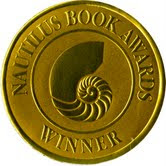Friday, September 30, 2011
Green Mulch
The culprits are not so much weeds, although there are a handful that escaped my attention and are now going to seed. Tomatillos sprawl everywhere. In our short northern season, only a few on each plant are big enough to harvest. So i pull out the plants wholesale, and pile them up in the middle of the garden. Self-seeding arugula has also gone wild, and i tug another one out every 3 or 4 feet.
I pile up all this green stuff onto the tomato bed and voila! Green mulch.
Sitting down to meditate can feel like we are waist-deep in the alligators of the mind. Our mindfulness mulch consists of noticing each thought--not as a distraction to our breath meditation, but as another opportunity for mindfulness. "There you are, Irritation." "I see you, Worry." "There, there, Anxiety." Simply call these gator/hindrances by name.
Proceeding step-by-step, through the garden or through our meditation, we clear a space and take a deep breath. Ahhh.
Wednesday, September 28, 2011
The Aging Garden(er)
We age and our gardens age. Some gardens peter out. Some gardens become impenetrable jungles. A certain dispassion arises, which a younger gardener may misread as lack of interest.
For those who are fascinated by the natural world, perhaps the emphasis shifts to a different syllable. Instead of focusing on doing and controlling, on having (more plants) and becoming (a better gardener), the attention naturally shifts to simple unfolding.
The aging body unfolds in new and unexpected ways. And so does the garden and all the plants within it.
Monday, September 19, 2011
Death in the Garden
Mostly in the garden we intend death--to slugs and bugs, voles and moles, beetles and weeds. We plot the demise of woodchucks. We pray for hunters to decimate the deer population. We feel exasperated enough to wish death on 4-legged, 6-legged, 8-legged, or many-legged creatures.
But an unintended death strikes our heart. "Oh! Poor dear."
We sigh, breathing out the contraction of surprise, horror, and really, the fear of our own death. After all, death may overtake us in some surprising way. The body and the ego: Gone.
If we look closely enough, we see that we die every minute. Our ever-changing experience arises and passes away, moment by moment.
We go to the garden to touch the pulse of life--growing, blooming, and fruiting before our eyes. And dying.
Friday, September 16, 2011
Roots of Stress at the End of the Season
The good thing about predictions is that they light a fire under my intentions. Yesterday, in the rain, i picked all my peppers and harvested 2 basil bushes.
Hot weather has dropped off suddenly, which brings my attention squarely to face the fact of hot weather crops: Summer is over.
I cannot loll around in the delusion of an endless summer any longer. The cucumber vines have died. So have the tomato plants. I pulled out all the pepper plants (still green) yesterday. Basil is next. I cut zinnia bouquets every day.
I could take the route of aversion and just give up on the gardens. Forget it! Too much work!
I could take the route of greediness and think, "I'm going to harvest every single thing, turn my kitchen into a food preparation workshop, and fill my freezer to overflowing."
Delusion. Aversion. Greed. These are the roots of our stress in daily life.
I nod to each one as it shows up in my life and in my garden.
"Oh, hello, Delusion. You think i should wait a few more days just in case hot weather returns?"
"Hello, my good old friend Aversion. You think i should just give up and call it quits? You're too tired to do anything?"
"Oh, my dear friend Greed. So good to see you again. I see you have lots of plans that entail me harvesting everything, preparing it beautifully, and cooking delicious meals."
Mindfulness recognizes each one and smiles.
Thursday, September 15, 2011
Mosquito Meditation Redux
 hey do not hesitate to drill into tender skin.
hey do not hesitate to drill into tender skin.Unpleasant.
I'm out of the habit of spraying myself with mosquito repellant from Thailand--a citronella spray that smells pleasantly of lemon grass. So i am their unprotected victim.
Mosquitoes were scarce in the spring and summer. They were lazy with heat and could be shooed away with the wave of a hand. The absence of mosquitoes has made me lazy. I have come to believe that summers, and definitely autumns, should be mosquito-less. But reality is mosquito-full.
Days are still hot, even though the dark is gaining on the light and will soon (next week) overtake it. Mosquito predators (birds) are heading south, and the skeeters are having a field day.
When i practice the Mosquito Meditation on page 127 of The Meditative Gardener, i find that unpleasantness overwhelms me, i feel impatient, and i just want to get away from the buzzing that annoys me. I go indoors.
This is mindfulness too.
Wednesday, September 14, 2011
Basil Pesto

The August issue of The Meditative Gardener newsletter included a recipe for basil pesto. Now that it's time (or past time) to harvest basil, i've refined the recipe slightly.
My neighbor, Connie, tells me to blanch the basil leaves to take out the little undercurrent of bitterness that comes with basil that has gone or is going to seed. Of course, by the time i harvest basil, it's already flowering. Instead of beating myself up for not paying more attention to the basil (Aversion), i now "blanch" it by putting the leaves in a sieve in the sink and pouring boiling water over them.
Yes, the leaves start to look like spinach, but the pesto stays bright green instead of turning dark.
Here's Connie's recipe:
Basil Pesto
2 cups basil leaves
1/2 cup olive oil
Blanch the leaves in very hot or boiling water for 10 seconds or less.
Dry the leaves (which look like cooked spinach now) as best you can in a salad spinner or in a towel.
Put the leaves into a food processor with the olive oil.
You may freeze this pesto base in ice cube trays (great for single servings!) or in small containers.
When you are ready to serve pesto,
add to the pesto base in the food processor:
2-3 garlic cloves
1/2 cup parmesan
1/2 cup sun-dried tomatoes
Roast 1/3 cup pine nuts in a skillet until brown. (Or use walnuts.)
Mix the pesto and the whole nuts with pasta or rice.
Thursday, September 8, 2011
Harvesting. Or Not.
Regular basil
Purple basil
Lemon basil
Thai basil
Sacred basil aka Tulsi
Just imagine the delicious pesto, fish, or Thai curry i could cook! (Delusion)
Since summer is full of vacationing, by the time i settled down at home in late August, the basil was flowering. (Aversion, because you're supposed to pick basil BEFORE it flowers.)
Yesterday i harvested the lemon basil, put it through the food processor, and froze it in little containers. (Happiness.)
This morning i harvested the purple basil.
But does anyone really want to eat purple pasta? (Doubt.)
Today i'm turning my attention to sacred basil, which has a very slight anise undercurrent to the main basil flavor. Hmmm. Licorice pasta? (Doubt AND aversion.) In the Ayurvedic system, sacred basil (tulsi) is used to make teas and tinctures. (Desire for a good idea.)
Harvesting continues in fits and starts. Doubt, aversion, and worry slow me down. Sense desire (pesto!) speeds me up.
Bringing mindfulness to the harvest of your garden, what do you find?
What vegetables or flowers languish?
Which vegetables or flowers actually get picked?
Once they are picked, what happens?
Wednesday, September 7, 2011
What to Do with a Hornworm?

by Guest Blogger, Jenny Holan
What an interesting dilemma. I haven't been persistent about outlining my creed or principles, or following a path illuminated by others.
This dilemma shows up once in awhile, as at present: I looked up the large pupa that appeared in my garden, and it's clearly that of a sphinx moth, a k a hornworm. What to do?? Interfere with the life cycle? Try to stay out of it by pretending I never saw it? I really want to remove it a long way from my tomatoes, preferably to some butterfly/hummingbird garden where the moth can enjoy a wealth of nice nectar. But it wouldn't be ethical to bring it anywhere nearer to someone else's tomatoes than to mine. This individual doesn't seem to have done damage to me in its dangerous tomato-hacking days, but I quail to think of the number of children it may produce, and the havoc that could happen next summer. I have waited so long for the tomatoes to bear fruit...
I know Buddhists have been releasing purchased birds for centuries, but I'm ambivalent about the karma-for-ransom concept, having trouble with the whole idea of an industry, or anyway a livelihood, predicated on a demand for captive lives, as it is for some people.
The Putney event is procuring its butterflies, along with organizing and naturalist advice, from a clearinghouse called Wings of Hope, which coordinates supplies of pretty insects (the ones reported are overwhelmingly monarchs and painted ladies) with those who wish to use them to call attention to the needs of wildlife, the search for health care and research, spiritual concerns and community, or any cause or occasion. I didn't know that there are such people as butterfly breeders, who raise and ship them out like ranchers, but these are the suppliers, who donate their livestock for educational purposes, including showing children and shut-ins something about butterflies, as well as for memorials and ecology studies.
Might a release to which a "minority volunteer" is introduced (local moth) be more in harmony with the balance of nature than one at which only the non-threatening elite "graduate"? Sure, one or two would be statistically absorbed, but if this was done by many at once, would there be less of an impact? Or would a reduction of control spell trouble?
Tuesday, September 6, 2011
Noticing Pleasant, Unpleasant, and Neutral
I have been doing my best to be alert, relaxed, and minimally planned/set/decided as the garden emerges. It now incorporates and makes its way amid the chaos of nature. I hold off expectations and let myself be surprised and delighted when something edible turns up.
Now i'm watching an unexpected pupa sheltering under weeds where the peas were, wondering what will develop.
I amused myself recently by observing my reaction when I sat in sunny grass, and a small moth flew up, landing briefly on my nose. I noticed I was waiting to pass judgment, but i actually had no opinion pending the identification of the cause of the sensation. I was ready to be awed had it been a beauteous butterfly, annoyed were it a deerfly, neutral if a spider.
Thinking makes it so.
Monday, September 5, 2011
Eggplant
By Guest Blogger, Bettina Berg
Living as we do, in a place and at a time where the push for farmer’s markets and locally produced, organic food and products is at an all-time high, I get a bit of a chuckle in thinking back to my childhood when frozen vegetables were all the rage. While not an important fact in general, for the purposes of this telling, it might help to know that I grew up in Central Ohio in the 60’s and 70’s. Despite being a fairly agricultural state, the part of Ohio that I called home was small town, suburban. Despite being female, the woman I called my mother was busy, not housebound. The combination was a perfect storm for the ad men of Madison Avenue and the Jolly Green Giant of Minnesota.
While I grew up loving spinach, green beans and squash, I did not know them as anything but frozen blocks in the freezer compartment of the Frigidaire. Their counterparts, peaches, pears and pineapple could be found in brightly colored cans on the bottom shelf of the lazy Susan in the corner of the kitchen. I did know about lettuce. It was called Iceberg and came in a tight, round, crunchy head that got chopped up into bits and was delicious with Kraft oil and vinegar dressing.
My friend Janet and her family vacationed in Canada in the summer, and Janet often spoke of asparagus as something that she relished during their time there. I wondered what it was and how it tasted. I was fairly sure I wouldn’t like it--you had to pick it, for heaven’s sake. Another friend Lila sang the praises of artichokes, a vegetable the likes of which I had never seen. When I visited her family in Boston, I begged off by saying that I didn’t care for them rather than admit my ignorance of how I would even begin to eat the spiny thing before me. When asked once to collect some watercress from a walk-in refrigerator, I stood and looked around taking stock of the things I didn’t recognize and returned to the kitchen with an eggplant.
So how does any of this connect to doing the work of hospice? To me, it is a reminder that we bring what we know to any given situation. It is easier to be tolerant of my missteps when I remember that my upbringing, my opportunities or lack of them, my culture and my beliefs all influence how I approach and understand a situation. It is a reminder that after eleven weeks of training and several years of volunteering, I cannot know what another person’s dying is to them. What I can bring now is curiosity (what does asparagus taste like?) and a willingness to ask for help and clarification (oh, you pick off the leaves of that thing?) in order to try to understand what someone may be saying to me. It is a reminder that I need to be forgiving of myself for not being knowledgeable about everything (so, I’ve heard of watercress, but I’m going to need a little bit more description here.) It is also a reminder that I may be able to offer another something that has been unknown to them because of their life’s path. By listening carefully, I hope to know whether it is eggplant or watercress that is being asked for.
So, summer appears to be here, and soon the local markets and farm stands will be rife with produce for our consumption. I plan to partake fully.
Friday, September 2, 2011
Surprise!

I like surprises, so back in May, i bought a pack of "Heirloom" tomatoes at the Farmers' Market. Which Heirlooms? Only time would tell.
So, i couldn't quite believe my eyes when i saw the first yellow tomato in the vegetable garden. Yellow? What's a yellow tomato doing in my garden? Oh, right. The Heirlooms!
My dad loved yellow tomatoes, but i would never willingly eat one. I have to say though, that yellow tomatoes are surprisingly tasty. Another yellow tomato plant has tomatoes with green stripes. Then there's the coral-colored tomato that's green on top. I keep waiting for it to ripen, but it only rots. Oh! It's supposed to be coral and green, so i eat it as is.
Our lives are full of surprises, even though we like to think we are in control of our lives. With all the choices available to us nowadays, we think we should get what we want. Certainly NOT yellow tomatoes!
But no one can predict the future. And it bothers our minds tremendously (called anxiety, worry, restlessness, or fear) when we consider the future.
I don't even know--for sure--what i'm going to eat for breakfast in 20 minutes.
Stay in the present moment. It's the only place we can ever be anyway. Let it surprise you.
Thursday, September 1, 2011
The Storms of Life
That sedate creek became a raging river last Sunday during Hurricane Irene. When Jim left for church, the brook was turbulent; when he returned, a flash flood had spread over his football-field-sized backyard and into his garage. He was able to close the back door of the garage against the water that was pouring in.
Then he watched as a 15-foot-long brush pile that he'd been adding downed sticks and weeds to for 5 years, floated, turned slightly, and jammed into the back of his garage, effectively forming a beaver dam barrier that was held in place by the force of the water.
In our meditation practice, we eventually learn that the debris of our thoughts are floating down the river of consciousness.
Then, sometime, when we are flooded by the waters of emotion, our mindfulness is strong enough, and we have enough faith that mindfulness can protect us. We decide we can tolerate the turbulent emotion for 1 minute or 10 minutes, and so we watch the flood.
An emotion has 2 parts--body sensations (often unpleasant) and a thought (very slippery). We decide to observe just one of these.
We watch body sensations--the tension, the tightness--or we watch the bumpy, smooth, rough, short, or shallow breath.
If our mindfulness is strong, we watch thoughts go by like downed trees in a swollen river. That thought, which seemed so strong and sturdy and true, actually comes into view, floats by us rapidly, and disappears. Gone.
The next thought rushes by, again gathering all our attention and even our belief in it, then it too is gone.
Mindfulness is our ally during the storms of life.



















